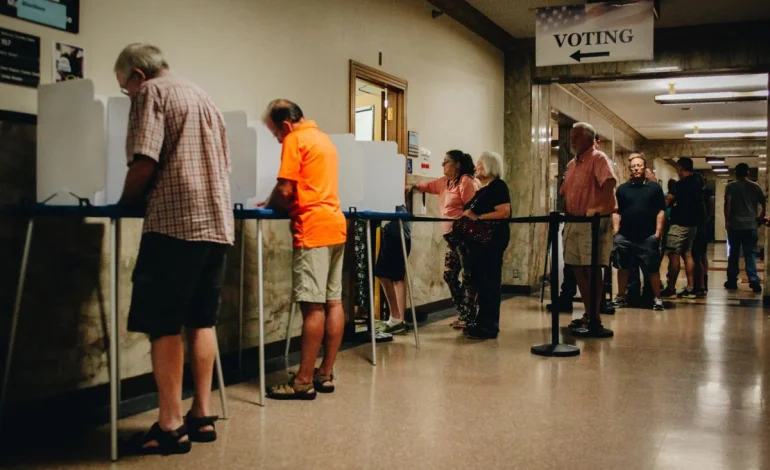Beginning July 1, Wyoming residents may face a new requirement to register to vote: proving they’ve lived in the state for at least 30 days prior to an election, Casper Star-Tribune reports.
The change stems from House Bill 156, passed during the 2024 legislative session, and it marks a significant shift in the state’s voter registration procedures.
The law also requires proof of US citizenship for new voter registrations and outlines specific forms of acceptable identification. However, the details around what constitutes proof of Wyoming residency have drawn both scrutiny and legal action.
A coalition of more than 30 nonprofit organizations — including social justice, environmental, and labor groups — has challenged the law in federal court, seeking to halt its implementation. The coalition, led by the Equality State Policy Center (ESPC), argues the law lacks clarity and could lead to voter disenfranchisement.
“HB 156 states that ‘proof of residence’ may be established by a signed attestation… but the Legislature did not offer any additional guidance on what the residency attestation should look like or how it should be implemented,” said ESPC Executive Director Jenny DeSarro in a letter to the Secretary of State’s Office.
Wyoming Secretary of State Chuck Gray, who has championed the law, has defended it as a necessary step to ensure election integrity.
“We really needed to get something on the books so somebody couldn’t just be here 10 seconds and register to vote in Wyoming,” Gray told lawmakers earlier this year.
Gray’s office has proposed rules outlining acceptable forms of documentation to verify 30-day residency. These include a valid Wyoming driver’s license or digital license with a state address, or a tribal identification card. Recognizing concerns from counties like Teton, where many IDs list only P.O. boxes, Gray’s office clarified that a post office box may be accepted as long as a residential address is also listed on the voter registration form.
Still, under the proposed rules, many forms of identification — including those issued by the federal government or other state and local agencies — would no longer be sufficient to prove Wyoming residency.
A public comment period on the proposed rules recently concluded, following a June 4 hearing. The Secretary of State’s Office is now reviewing feedback and may make revisions before finalizing the rules. Afterward, the state Legislature will have 75 days to weigh in, and both the governor and the Attorney General’s Office will review the rules.
Governor Mark Gordon has expressed reservations about HB 156. He declined to sign the bill and has previously vetoed similar proposed rules, citing concerns over separation of powers and the potential for legal conflict with federal voting protections. Gordon warned in March that the residency requirement could conflict with federal statutes that prevent states from imposing durational residency limits on voters in federal elections.










The latest news in your social feeds
Subscribe to our social media platforms to stay tuned